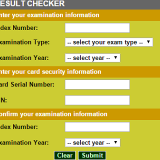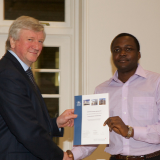5 Ultimate Tips That Will Easily Increase Your Productivity
It’s amazing that these days we have all these wonderful tools and apps that are meant to help us become more productive and yet, we still find ourselves struggling with our daily tasks. Procrastination has become one of the biggest problems many of us face, and that happens for a reason. Yes, we have so many tools designed to help us to become more productive, but at the same time, these days we have much more distractions than before.
While smartphones and the Internet ease our lives greatly, they also make it more complicated at the same time. All these emails, notifications, and messengers distract many of us all the time and so, we find it hard to work and perform our daily tasks as effectively as we would like to.
However, even if you find yourself trapped in a circle of procrastination, deadlines, and stress, this doesn’t mean that you are cannot break this circle. I’m here to help you overcome your daily struggles and become much more productive than you are now.
1. Find where your time goes
It’s important to learn how to manage your time well, but first you have to understand where this time goes in the first place. Some of us keep living a life full of deadlines and stress, desperately wanting to start doing things on time, but still failing.
Try actually counting the time you spend on your daily tasks, be it your morning routine, your work duties or the time you spend on Facebook. There are certain software that can help with that, for example, RescueTime extension for Chrome; which allows you to understand how much time you spend on useful websites and how much time is dedicated to the social media and entertaining websites.
The way you track your time is up to you. You can write everything down in your notebook, use a time-tracking software or log everything using your smartphone. The results could be surprising: after people track their time for a week or two, they often realize how many hours a day they actually spend on useless stuff.
2. Discipline yourself
Once you find out where your time goes, it’s time to start doing something with that. Of course, it’s hard to break your habits immediately, so it will probably take a lot of discipline to change your routine and become more productive. However, when I’m talking about discipline I don’t mean that you have to be too strict with yourself, this way you’ll probably stress yourself even more.
The important thing here is to be conscious about what you are doing. Many people try changing their lives without a real desire to actually do so, that’s why they fail. If you know that you want to become a better and more productive person, then you have to set a goal and stick to it. Remind yourself why you’re doing it, reward yourself for doing things quickly, and for not getting distracted while you’re doing your work.
3. Do the hardest tasks first
Sometimes, we procrastinate not because of work in general, but because of the one task that we find the hardest or simply because we dislike it. It’s important to do such tasks first, right in the morning; this way, you’ll have the toughest job finished early and will feel proud of yourself for finishing it. Call your adverse client first, write an application essay, eat that frog, as mentioned by Brian Tracey, right? That’s a great motivation!
4. Set your own deadlines
Your boss wants something done by Friday? Why don’t you finish it by Tuesday then?
The tricky thing about deadlines is that they do stimulate some of us greatly. However, when we’re doing a certain task at the last moment, we risk failing it if something unexpected happens (for example, if you suddenly get sick or if an urgent task appears).
If you’re setting your own deadline which is earlier than the one you’ve been assigned, you are saving yourself from these unexpected situations, so that even if they happen, you’ll still have a day or at least a few hours ahead to finish everything on time. Moreover, if you do your job early, you’ll probably impress your boss in a good way and that’s always a good thing!
5. Don’t put small tasks aside
Sometimes, we put aside so many small tasks that could be finished in a minute or two, only to see them piled up later. The more insignificant the task seems, the more important it is for you to do it as soon as possible, as it’ll take less time than if you have to return to it later.
Moreover, a completion of a task (even a small one) makes us feel better about ourselves as well as allowing us to focus on more important tasks. Imagine that you could reply to an email right away, but decided to do it later: you have to remind yourself about it all the time until you actually do it. This could be very stressful.
However, it’s important to complete all these small tasks only when you have time. If you get distracted by an email while doing your work, it wouldn’t be wise to reply to it straight away (or even to read it until you finish your work). If you do so, you can get distracted even more (for example, if you have a bunch of emails waiting for your reply), or can simply find it harder to return to your primary task after such distraction.
Personal effectiveness and productivity doesn’t come easily, but they could be trained and improved just like many other skills. The last and probably the most important tip I can give you is to learn to be conscious about the things you are doing at the moment.
Most of the things we do when we procrastinate are done unconsciously. How many of us actually want to play games on their smartphones or chat on Facebook, knowing that this is going to lead them to stress and deadlines later? Probably a few at most. That’s why the best way to become more effective is to be conscious and ask yourself questions like: what am I doing at the moment? Will it help me make my life better or will it get me into trouble later? all the time. I hope that you’ll learn how to do this, making your life more productive and so much more interesting!
 About the author: With a background in education and entrepreneurship, Jake Lester currently writes for the educational blogging projects. Jake writes for many blogs and gives useful advices for entrepreneurs, students and educators. He likes to cover stories in productivity, careers and education.
About the author: With a background in education and entrepreneurship, Jake Lester currently writes for the educational blogging projects. Jake writes for many blogs and gives useful advices for entrepreneurs, students and educators. He likes to cover stories in productivity, careers and education.

















